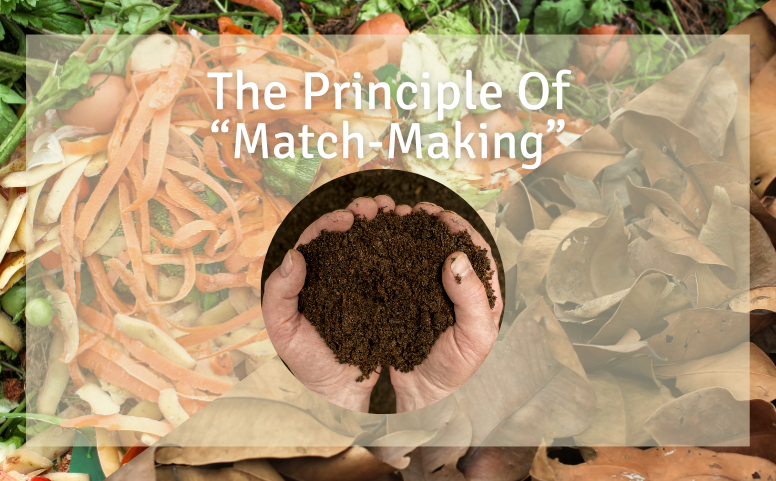Composting is a natural process where organic materials, such as food scraps, yard waste, and other biodegradable materials, are broken down by microorganisms into a nutrient-rich soil amendment called compost. This process occurs in a controlled environment, such as a compost bin or pile, where conditions such as temperature, moisture, and aeration are optimised to facilitate decomposition.
Principle of matchmaking:
Kitchen or wet waste, being nitrogen-rich, decomposes faster, leading to the growth of anaerobic bacteria and emitting bad odors. This anaerobic process also releases methane gas, a greenhouse gas contributing to global warming.
In contrast, dry leaves are carbon-rich and decompose more slowly.
The principle of matchmaking occurs when both nitrogen-rich and carbon-rich waste are mixed in appropriate proportions. This allows decomposition to happen under aerobic conditions. After a certain period of time, the waste is transformed into compost.
Does this mean that Dry leaves and Kitchen waste can be mixed together for composting?
Dry leaves and kitchen waste should be handled separately. While dry leaves are rich in carbon, they have low moisture absorption capacity. This can be observed in untreated dry leaves that linger around the city for extended periods without decomposing. On the other hand, areas where kitchen waste is dumped often emit strong odors, making them unpleasant and avoided by people.
Dry leaves have less moisture absorption capability because it is covered with a wax layer known as cuticle which does not absorb water. It acts as a waterproof barrier that prevents water from entering or escaping through the leaf surface. Due to this leaf cannot decompose on its own. Even with the absorbent material added it takes a longer time for decomposition.
Just as we buy a washing machine with specific requirements for washing powder, adding bar soap or other products not meant for it would be inappropriate. Similarly, combining kitchen waste and leaf waste in one OWC unit is not recommended. In fact the compost generated from treating the kitchen waste can be mixed with dry leave for treating the yard waste.
What are the optimal combinations of carbon and nitrogen waste?
- Landscape waste with SPT sludge
- Leaf waste with poultry manure
- Kitchen waste with cocopeat(with beneficial microbes)
